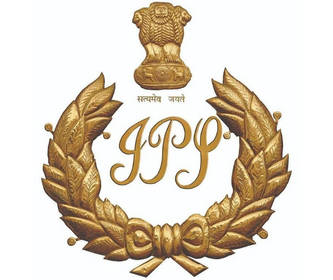
In September 2021, NLSIU initiated a research project which aims to assess and strengthen the role of women in policing in India, with a focus on the southern state of Karnataka. Funded by the Hanns Seidel Stiftung, a leading German Foundation, the two-year project aims to promote better understanding of, and informed engagement with, policy, legal and operational issues surrounding policewomen in India.
Timeline: 1 September 2021 till 31st December 2023
Background
Since 2009, the need to increase the representation of women in in the police forces has gained prominence in Indian policy discourse. This shift is attributed to certain criminal law reforms that enlarged the statutory functions to be undertaken by women police personnel. In 2009 the Government of India adopted, for the first time, a target of 33% representation of women in the police. Official data as of 2020 shows that nine states and all union territories except Jammu and Kashmir and Ladakh have adopted a 33% reservation policy. Five states have a 30% reservation policy, and five states have 25% or less reservation.
As of 2020, the Karnataka State Police reported 6,896 policewomen in total (civil and armed), constituting 8.28% of the state police (Data on Police Organisations in India as 1 January 2020, Bureau of Police Research and Development). It is relevant to note that 88% of the total civil policewomen strength in the state is at the Constabulary ranks (Constable + Head Constable), and less than 1% at the leadership ranks (SP and above). The investigating ranks (ASI/SI and Inspector) have 730 women against a total of 1,051 police stations. In other words, 321 police stations will not have a single woman Investigating Officer at any given point.
Achieving the target of 25% within a specified time period will require coordinated and simultaneous efforts at multiple levels to ensure the recruitment of women at each entry level, year-on-year; robust facilities and infrastructure; and effective policies by way of creating an enabling environment for women.
Project Overview
The project has three components:
- Study on Women in Karnataka State Police (May 2022-April 2023)
In May 2022, NLSIU entered into a Memorandum of Understanding with the Karnataka State Police to conduct an independent assessment of the status, role and challenges facing policewomen at different levels within the state police. The study involves two phases:
Phase 1 involves a district and police station-wise assessment of women’s representation at different ranks across the state. This is now complete.
Phase 2 involves the ground assessment of challenges faced by policewomen in Karnataka. Currently underway, this is being conducted through one-on-one interviews with senior women police officers and focus group discussions with women constables in at least 10 districts in Karnataka. As of December 2022, the team has completed fieldwork in Mysore, Mandya, Chikkaballapura, Kodagu, Udupi, Kalaburagi and Raichur districts. The project also includes an attitudinal survey to gauge the views of male and female police officers on the importance of having women in policing. This is crucial in order to assess the support, at all levels, towards increasing women’s role in policing.
The findings of the study will culminate in a comprehensive report to be submitted to the Karnataka police department by April 2023. For details on the methodology, see the concept note.
- Police training and knowledge sessions (June-December 2023)
Workshops centred on findings emanating from the study, particularly around systemic barriers to women’s equitable growth, will be delivered to senior and district level supervisory officers. Jurisprudence around substantive equality, affirmative action, legal remedies and police reforms will be discussed to deepen the understanding of organisational changes required for achieving gender diversity in policing.
- Legal awareness (throughout the project period)
A key component of the project is to develop targeted resources explaining legal provisions, national policies as well as international practices and trends on supporting policewomen. These are being disseminated widely to police leaders, practitioners and researchers.
Project Resources
Through the project period, observations and insights from the research will be shared through multiple platforms at NLS including public lectures, faculty seminars, NLS newsletter and social media.
- Explainer Note | Policewomen in India: Legal mandate and policy guidelines for exclusive and preferable functions
The explainer note is designed as an educational resource to deepen awareness about the specific functions and roles mandated by law to be performed by policewomen in India. Recognising the statutory functions of policewomen is crucial in order to ground both policy and public discourse around the role of women in policing. For police officials, knowledge of the legal mandate can provide an impetus for the department to plan for increased recruitment and deployment of women at all levels. It can further be helfpul in mobilising support for the increased role of women in policing particularly at the middle and subordinate levels. Among the public, the note aims to deepen awareness about important safeguards and procedures in interacting with the police, particularly as a female victim, witness or a suspect.
The note is available in English and Kannada.
- Blog Series | ‘Dispatches: Women in Police’
This blog series highlights field notes and emerging insights from the project in the hope of generating greater interest in the functioning of an institution that serves as the first port of call for those seeking criminal justice. Read the first blog post here. - Dialogue Series | ‘Equalising the Role of Women in Police’: This is an online dialogue series featuring programmes, initiatives and research on women in policing from India and around the world. More details of the inaugural webinar, ‘Global Practices on Women in Policing’ is available here.
- Animated video | Legal mandate of policewomen in India
- Compendium | Global practices on women in police
Watch the inaugural webinar on ‘Global Practices on Women in Policing’ below:
Final Output
The project will culminate with a report presenting findings of the assessment and targeted recommendations to the state police department.
For further information, please reach out to:

